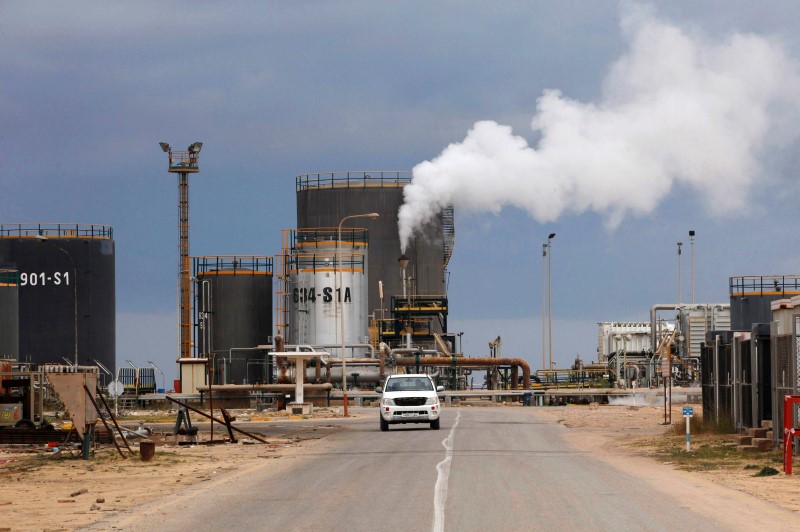By Olesya Astakhova and Oksana Kobzeva
ST PETERSBURG (Reuters) - Russia would be able to raise its oil output back to pre-cut levels within months if there is a decision to unwind the price-protection deal with OPEC and other producers, a Russian energy ministry official said.
Moscow agreed to cut Russian output by 300,000 barrels per day (bpd) from a 30-year high of 11.247 million bpd in October 2016 as part of a deal to tighten the market and lift prices from less than $30 a barrel, their lowest in more than a decade.
This global deal is valid until the end of 2018 and is due to be reviewed by the Organization of the Petroleum Exporting Countries and non-OPEC countries in June 22-23 in Vienna.
Russia and OPEC leader Saudi Arabia have talked of a gradual increase in output as the goal of removing excessive oil stockpiles has been achieved and the market is broadly balanced after producers last year began withholding 1.8 million barrels per day (bpd) to tighten the market and prop up prices.
"Speaking about potential in the short run, growth potential (in Russia) is at least 300,000 bpd, which were cut voluntarily by the companies as part of the OPEC agreement," Pavel Sorokon, a Russian Deputy Energy Minister, told Reuters in an interview.
"Within a few months we surely will be able to restore that level if such a decision is taken," Sorokin added.
Russian Energy Minister Alexander Novak, said on Saturday that returning to the oil production levels of October 2016 is one of the options for the future of the deal.
U.S. OIL CONSTRAINTS
Rising output in the United States has been a headache for other oil producers as it has been a major contributor to the downward pressure on prices.
Sorokin, a former oil and gas analyst at Morgan Stanley (NYSE:MS), said U.S. shale oil output, the key driver behind the stellar growth in the country's oil production, will increase by 1.3-1.4 million bpd this year, lower than some estimates.
"There is not enough infrastructure, there are certain bottlenecks with the staff availability, equipment, while lifting costs have started to creep up," he said.
